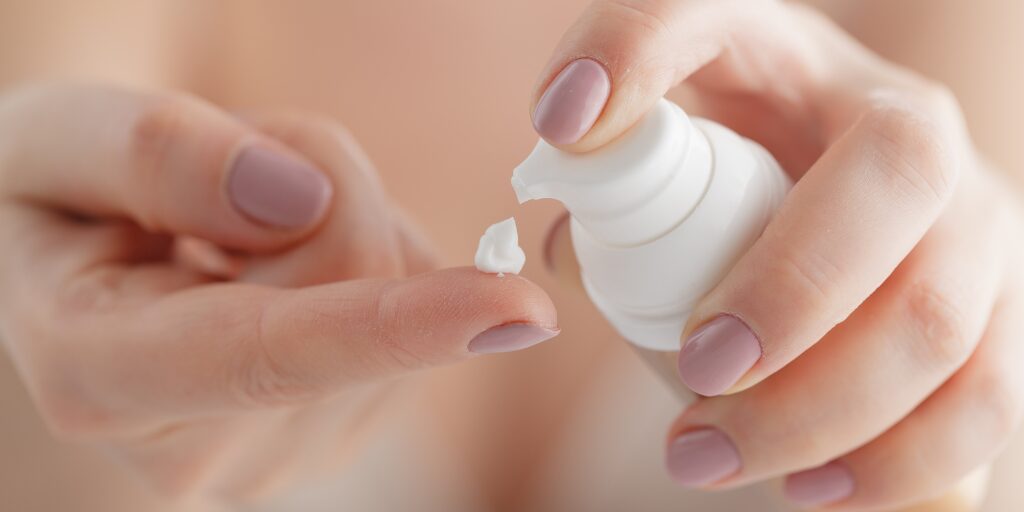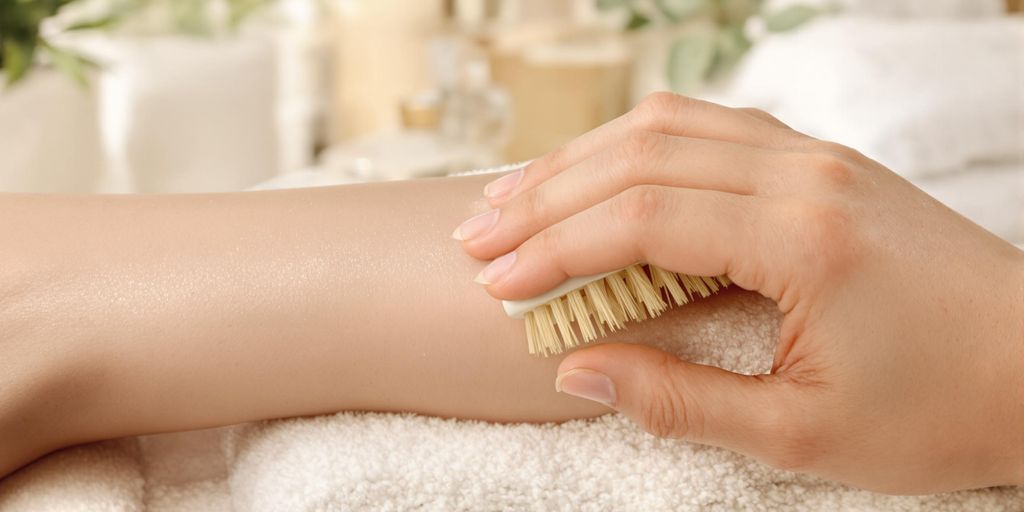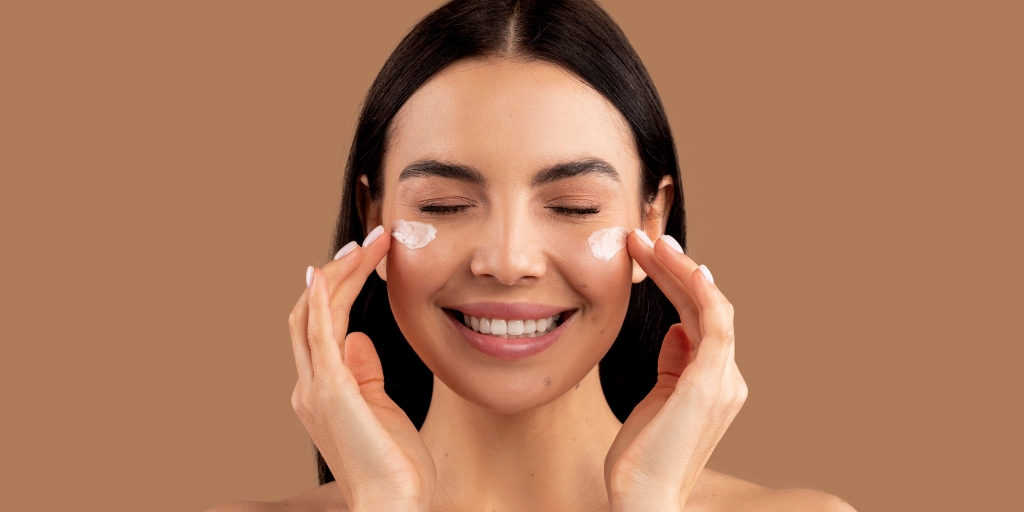When it comes to skincare, there’s a ton of information out there, and not all of it is true. With so many products and marketing claims, it’s easy to fall for some common misconceptions. Dermatologists have seen it all and are here to help clear the air. Let’s take a look at some of the biggest skincare lies that many people still believe, so you can make better choices for your skin.
Key Takeaways
- Natural doesn’t always mean better for your skin.
- You don’t need a ton of products to see results.
- Sunscreen is a must, regardless of the weather.
- Moisturizers are important for all skin types, even oily skin.
- Hydration comes from both products and water, but balance is key.
Skincare Lies About Ingredients
Natural Ingredients Are Always Better
Okay, let’s get one thing straight: “natural” doesn’t automatically equal “better” when it comes to skincare. I used to think anything from nature was automatically good for my skin, but that’s just not true. Poison ivy is natural, but you wouldn’t rub it on your face, right? The effectiveness of an ingredient depends on its specific properties and how your skin reacts to it, not just its origin.
- Many synthetic ingredients are rigorously tested for safety and efficacy.
- Natural ingredients can be unstable and prone to degradation.
- Allergies can occur with both natural and synthetic ingredients.
More Ingredients Lead to Better Outcomes
I used to think that if a product had a million different ingredients, it had to be super effective. Like, the more, the merrier, right? Wrong! Sometimes, less is more. A long ingredient list can actually increase the risk of irritation and allergic reactions. Plus, how can you even tell which ingredient is doing what when there are so many?
- A shorter ingredient list can be better for sensitive skin.
- Focus on products with key ingredients that target your specific concerns.
- Too many active ingredients can overwhelm your skin.
Fragrance-Free Products Are Always Safe
Fragrance-free sounds like it means totally safe, right? I mean, no fragrance, no problem! But here’s the thing: “fragrance-free” doesn’t always mean there are zero potential irritants. Sometimes, products labeled fragrance-free still contain masking fragrances to cover up the smell of other ingredients. It’s sneaky, I know! If you’re really sensitive, look for products labeled “unscented” and check the ingredient list carefully.
- “Unscented” products may contain masking fragrances.
- Always check the full ingredient list, even on fragrance-free products.
- Patch-test new products to check for reactions.
Misconceptions About Skin Types
Oily Skin Doesn’t Need Moisturizer
Okay, let’s get one thing straight: everyone needs moisturizer, even if you feel like you could fry an egg on your face by noon. The idea that oily skin can skip moisturizer is a huge myth. Dehydration can actually increase oil production as your skin tries to compensate for the lack of moisture. So, you end up with even more oil. Instead, look for lightweight, oil-free, or gel-based moisturizers. These will hydrate your skin without clogging pores or making you feel greasy. I personally love using a gel moisturizer in the summer because it feels so light and refreshing.
Sensitive Skin Can’t Handle Actives
This one’s tricky. It’s true that sensitive skin can be easily irritated, but that doesn’t mean you have to avoid all the good stuff like retinoids or AHAs. The key is to introduce actives slowly and carefully. Start with a low concentration and use it only a couple of times a week. Pay close attention to how your skin reacts. If you notice redness, dryness, or irritation, back off and try again later with an even lower concentration or less frequent use. Patch testing is your best friend here! Also, look for products specifically formulated for sensitive skin, as they often contain soothing ingredients to help minimize irritation. Don’t be afraid to try gentle actives, just be smart about it.
Dry Skin Is Always Dehydrated
Dry skin and dehydrated skin are often used interchangeably, but they’re not the same thing. Dry skin lacks oil, while dehydrated skin lacks water. You can have dry, dehydrated skin, oily, dehydrated skin, or just one or the other. Dry skin is a skin type, meaning it’s a long-term condition. Dehydration, on the other hand, is a temporary state that can be addressed by drinking more water and using hydrating products. So, if you have dry skin, you need to focus on adding oils and emollients to your routine. If you have dehydrated skin, you need to focus on adding humectants like hyaluronic acid to draw moisture into the skin. Sometimes, it’s both! Here’s a quick breakdown:
- Dry Skin: Lacks oil, often feels tight and flaky.
- Dehydrated Skin: Lacks water, can look dull and feel tight.
- Solution for Dry Skin: Use rich creams and oils.
- Solution for Dehydrated Skin: Use hydrating serums and drink more water.
The Truth About Anti-Aging
You Can Reverse Aging with Products
Okay, let’s be real. Can you actually reverse aging with a cream? Probably not. While some products can definitely minimize the appearance of wrinkles and improve skin texture, they can’t turn back time. Think of them more like really good camouflage. They can plump up the skin, reduce the look of fine lines, and even out skin tone, but they’re not going to erase years of sun damage or completely restore lost collagen. It’s more about managing expectations and focusing on prevention.
Sunscreen Is Only for Sunny Days
This is a big one! You need to wear sunscreen every single day, rain or shine. UV rays are sneaky, and they can penetrate clouds. Think about it:
- UVA rays, which contribute to aging, are present all year round.
- Even on cloudy days, up to 80% of the sun’s UV rays can reach your skin.
- Cumulative sun exposure over time is what really causes damage.
So, make sunscreen a non-negotiable part of your daily routine. Look for a broad-spectrum anti-aging sunscreen with an SPF of 30 or higher.
Botox Is the Only Solution
Botox is amazing, and it works wonders for reducing wrinkles, but it’s not the only option. There are tons of other things you can do to keep your skin looking youthful. Consider these:
- Retinoids: These are vitamin A derivatives that boost collagen production and improve skin texture.
- Chemical peels: These exfoliate the skin and reduce the appearance of fine lines and wrinkles.
- Microneedling: This stimulates collagen production and improves skin texture.
And don’t forget the basics: a healthy diet, plenty of water, and enough sleep. These lifestyle factors play a huge role in how your skin ages. So, while Botox is a great tool, it’s just one piece of the puzzle. There are many skincare misconceptions out there, so it’s important to stay informed.
Marketing Myths in Skincare
Celebrity Endorsements Guarantee Effectiveness
Okay, let’s be real. Just because your favorite celebrity is slathering on a certain cream doesn’t mean it’s going to work for you. Celebrity endorsements are about marketing budgets, not necessarily about product efficacy. They get paid big bucks to promote stuff, regardless of whether they even use it. Your skin is unique, and what works for them might not work for you. Don’t fall for the hype; do your research and consider your own skin type and needs. You should always look for honest reviews from real people.
Luxury Brands Are Always Superior
Expensive doesn’t always equal better. Sure, some luxury brands use high-quality ingredients and have fancy formulations, but you’re often paying for the packaging, the brand name, and the marketing. There are plenty of affordable skincare brands that use effective ingredients and deliver great results. Don’t assume that a higher price tag automatically means a superior product. It’s about finding what works for your skin, regardless of the cost. Here’s a quick breakdown:
- Ingredient Quality: Some luxury brands do use higher concentrations or rarer ingredients.
- Formulation: Advanced formulations can justify a higher price, but not always.
- Packaging & Experience: You’re definitely paying for the luxurious experience.
New Products Are Always Better
The beauty industry is constantly churning out new products, promising the latest and greatest solutions. But newer isn’t always better. In fact, sometimes the tried-and-true ingredients and formulations are the most effective. Don’t get caught up in the hype of new releases. Focus on ingredients that are proven to work, like retinol or hyaluronic acid, and stick with a routine that works for you. Just because something is new doesn’t mean it’s revolutionary. Remember, marketing teams are good at making you think you need the latest thing, but your skin might prefer something a little more classic.
Common Skincare Routines
You Need a 10-Step Routine for Healthy Skin
Okay, let’s be real. You’ve probably seen those influencers with their elaborate 10-step skincare routines, and maybe you’ve felt a little inadequate. But here’s the thing: more isn’t always better when it comes to skincare. A simple routine tailored to your skin’s needs can be just as, if not more, effective. Think about it – are you really going to stick to ten steps every morning and night? Probably not. A streamlined routine is more sustainable and can prevent you from overwhelming your skin with too many products. I used to think I needed all the serums and masks, but now I stick to the basics and my skin is much happier.
Cleansing Twice a Day Is Essential
While cleansing is important, the idea that you must cleanse twice a day isn’t always true. For some, especially those with dry or sensitive skin, over-cleansing can strip the skin of its natural oils, leading to irritation and dryness. I know, it sounds counterintuitive! If you wake up and your skin feels clean and comfortable, a simple rinse with water might be enough. On the other hand, if you have oily skin or wear makeup, cleansing in the morning and evening might be necessary. It really depends on your skin type and lifestyle. I personally only cleanse at night to remove makeup and grime, and it works great for me.
Exfoliation Should Be Daily
Daily exfoliation? Sounds intense, right? And it is! Over-exfoliating is a surefire way to damage your skin’s barrier, leading to redness, irritation, and even breakouts. Exfoliation is great for removing dead skin cells and revealing brighter skin, but it should be done in moderation. Most dermatologists recommend exfoliating only a few times a week, depending on your skin type and the type of exfoliant you’re using. I made the mistake of using a harsh scrub every day once, and my skin was not happy. Now I stick to a gentle chemical exfoliant once or twice a week, and it makes a huge difference without causing irritation.
Hydration Myths
Drinking Water Clears Your Skin
Okay, let’s get real. We’ve all heard that chugging water is the secret to flawless skin. Celebrities swear by it, and it sounds so simple, right? But here’s the thing: while staying hydrated is definitely important for your overall health, the idea that it’s some kind of magic potion for your skin is a bit of a stretch. Your body is pretty good at regulating itself, and excess water just gets, well, flushed out.
Think about it. If drinking a ton of water instantly cleared up your skin, nobody would have acne! Sure, if you’re severely dehydrated, it’ll show in your skin, making it look dull and tight. But if you’re already drinking a reasonable amount, downing gallons more isn’t going to suddenly give you that radiant glow. It’s more about maintaining a healthy balance. So, keep drinking water, but don’t expect it to be a miracle cure. Instead, focus on a well-rounded skincare routine and a healthy lifestyle. You might want to consider a good cleanser to start.
Moisturizers Are Only for Dry Skin
This is a big one! So many people with oily skin avoid moisturizers like the plague, thinking it’ll make them even greasier. But guess what? Even oily skin needs hydration. When your skin is dry, it can actually overproduce oil to compensate, leading to breakouts and that shiny look you’re trying to avoid. The key is finding the right kind of moisturizer.
- Look for lightweight, oil-free formulas.
- Gel-based moisturizers are your friend.
- Hyaluronic acid is a great ingredient for hydration without the grease.
Don’t skip moisturizer just because you’re oily. You might be surprised at how much it can actually help balance your skin and keep it looking healthy. It’s all about finding what works for you.
You Can’t Overhydrate Your Skin
Alright, so you know how drinking too much water can be a thing? Well, guess what? You can actually overhydrate your skin too, at least topically. I know, mind-blowing, right? It’s not about drinking too much water, but about overdoing it with the moisturizers and other hydrating products. Dr. Shereene Idriss warns against obsessively hydrating the skin.
- Overdoing it can disrupt your skin’s natural barrier.
- It can lead to irritation and even breakouts.
- Fungal growth is also a risk.
Think of your skin like a sponge. It can only absorb so much. If you’re constantly slathering on layers of product, your skin can’t breathe, and it can actually start to freak out. Moderation is key. Listen to your skin and adjust your routine accordingly. Sometimes, less is more. Remember to use sunscreen as a final step in your skincare routine.
The Role of Diet in Skincare
Chocolate Causes Acne
Okay, let’s get this straight: that chocolate bar probably isn’t the sole reason for your breakout. It’s more nuanced than that. While some studies suggest a link between high-sugar, high-fat diets and acne, it’s not a direct cause-and-effect for everyone. For some, chocolate might trigger inflammation, which can worsen acne, but for others, it might not make a difference at all. It really depends on your individual body and how it reacts. So, before you swear off chocolate forever, consider tracking your diet and skin to see if there’s a correlation for you. Also, remember that moderation is key. A balanced diet is always a good idea, regardless of your skin.
Eating Healthy Guarantees Clear Skin
Ugh, wouldn’t it be amazing if just eating kale salads cleared up all our skin problems? Sadly, it’s not that simple. While a healthy diet definitely contributes to overall well-being, including skin health, it’s not a guaranteed fix for acne or other skin conditions. Genetics, hormones, stress levels, and your skincare routine all play significant roles. You can be the healthiest eater on the planet and still struggle with breakouts. Think of it this way: a good diet is like laying a solid foundation, but you still need to build the house with other skincare products.
Supplements Can Replace Skincare Products
No, no, a thousand times no! Popping a bunch of vitamins isn’t going to replace your cleanser, moisturizer, and sunscreen. While certain supplements, like omega-3 fatty acids or vitamin D, can support skin health from the inside out, they’re not a substitute for a proper skincare routine. Think of supplements as supporting players, not the stars of the show. You still need to cleanse to remove dirt and oil, moisturize to keep your skin hydrated, and protect it from the sun. Don’t fall for the hype that a pill can magically erase wrinkles or clear up acne. It’s just not how it works. Focus on a balanced approach: a healthy diet, targeted supplements if needed, and a consistent skincare routine. Remember, drinking more water for skin is not a cure-all.
Wrapping It Up: The Truth About Skincare
In the end, it’s clear that the skincare world is full of myths that can lead us astray. We’ve all been there, believing the hype about the latest miracle cream or the idea that we can achieve flawless skin overnight. But the truth is, skincare isn’t one-size-fits-all. It’s about finding what works for you and not getting caught up in the marketing tricks. So, next time you’re tempted by a flashy ad or a celebrity endorsement, remember to take a step back. Trust the advice of dermatologists and focus on a simple, effective routine. Your skin will thank you for it.
Frequently Asked Questions
Are natural ingredients always better for my skin?
Not necessarily. Just because something is natural doesn’t mean it’s safe or effective for everyone.
Do I need a lot of different products to see results?
No, more ingredients don’t always mean better results. Sometimes, simpler routines work best.
Is it true that oily skin doesn’t need moisturizer?
That’s a myth! Oily skin still needs hydration, just with the right kind of moisturizer.
Can I really reverse aging with skincare products?
No, you can’t completely reverse aging, but you can slow it down with good habits and products.
Is sunscreen only important on sunny days?
Not at all! UV rays can harm your skin even on cloudy or cold days, so wear sunscreen daily.
Does drinking lots of water clear up my skin?
While staying hydrated is good for your overall health, it doesn’t directly clear up skin issues.



